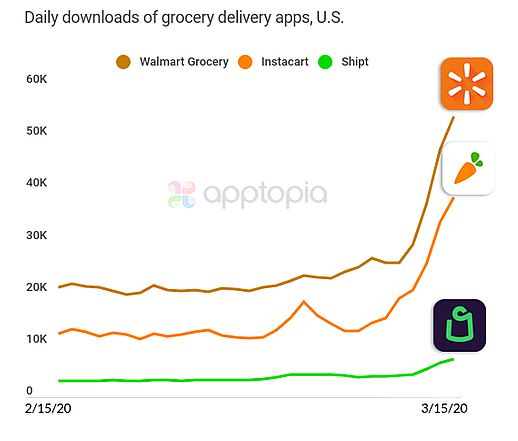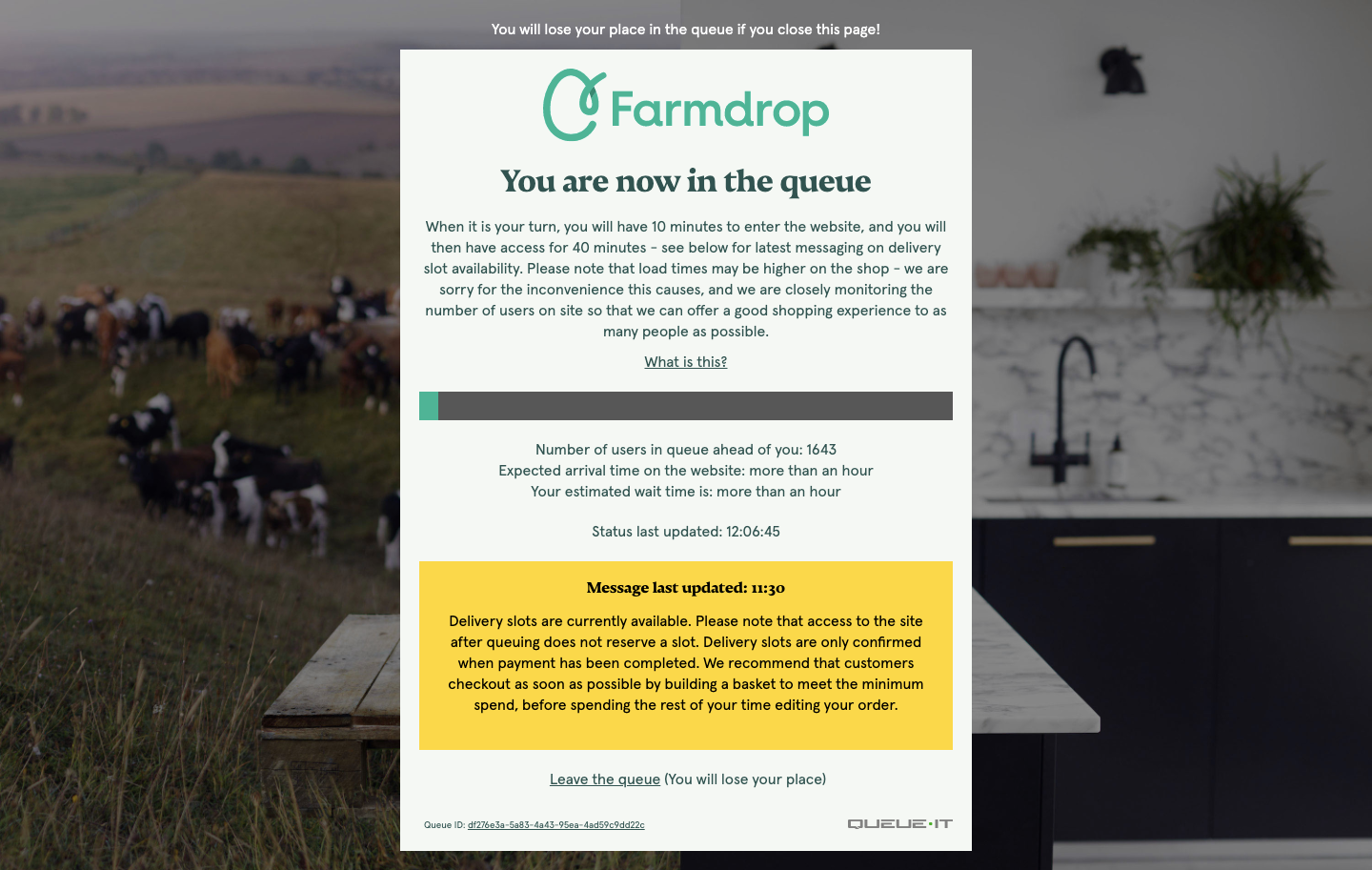
COVID-19 pandemic shifting E-Commerce consumer habits for good
With brick and mortar stores, manufacturers, and some fulfillment-challenged online businesses out of the game due to social distancing, there is still quite a lot of E-Commerce categories on the somewhat unexpected rise. As consumer behavior is shifting towards remote work, home entertainment, online shopping, and home deliveries in categories such as groceries, household goods, health care, or wellness sales are going through the roof. What will be the long term impact of the ongoing crisis on the E-Commerce industry? Everyone will benefit in the long term.
Offline dollars shifting to online, overnight
Online sales increased by 52% compared with the same time frame a year ago, and the number of online shoppers increased by 8.8% since the coronavirus began.
Lifestyle changes are particularly visible in the most affected regions as 50% of Chinese and 31% of Italian consumers say they’re shopping online ‘more frequently’ to purchase products they would usually buy in-store. But other countries are not far behind. In the US, 23% of respondents claim that their frequency of purchasing goods online increased in March as compared to the previous months.
The first wave of growing online sales (up to a 90% growth in Italy, the second after China most affected country) can probably be attributed to consumers stockpiling food and everyday necessities (i.e., baby care, pet food, toiletries, etc.) as well as increased demand for face masks, hand sanitizers, and other products that can be linked directly to the pandemic. However, we already know that many other industries follow suit. Health-adjacent products like vitamins, supplements, herbs, etc. are experiencing a huge boost in online sales too. And so are hygiene-related goods followed by skincare (all this frequent washing and disinfecting must have a negative effect on skin).
There’s only a limited selection of food products that can be stockpiled, and with the increased health concerns, few people are willing to dwell only on pasta and canned food. As the virus is spreading and more and more people find themselves in lockdown, they are turning to online grocery delivery, rather than risking a trip out themselves.
Grocery apps in the US have experienced record numbers of daily downloads in March. According to app analytics company Apptopia, Instacart saw a 218% increase when compared to download activity in February. Walmart and Target also observed month-to-month growth in the downloads of their mobile apps with Walmart Grocery up by 160% and Target and Shipt up by 90% and 124%, respectively.

Meanwhile, online fresh food marketplaces like London operating Farmdrop are experiencing so much traffic and such an increase in orders that customers have to wait in a virtual line to enter the store (online!).

The goods on high demand, however, are far from limited to the above mentioned. The government imposed restrictions on public life, and the #StayAtHome movement resulted in a sudden shift in society’s habits. The offices have suddenly become home offices as many companies have shifted to remote work, Netflix is the cinema nowadays and DIY meal-kits a substitute for a dinner out at a restaurant.
Meal-kit delivery brands like Blue Apron, whose shares shot up by 600% in 3 days and Marley Spoon (up by 28,4%), are experiencing a surge in demand for their home-delivered meal kits.
Offline loses while Online gains
As always, statistics do not paint the whole picture. Not all businesses have a part in this e-commerce spike. While some industries like groceries and household goods see exponential growth in online sales, others fall prey to the overall decrease in consumption. However, compared to the retailers who are dependent on brick and mortar stores, those who sell online are still better-off, even if they’re experiencing lower revenues. But they still sell, unless they relied heavily on Amazon’s fulfillment program (FBA), which is now limited only to essential products like household goods and medical supplies. This proves that being solely dependent on external service providers is never a good idea and that a self-hosted e-commerce solution and an omnichannel strategy is worth taking into consideration.
An interesting example is the automotive industry that has been hit hard by the Covid-19 outbreak with a drop in demand for new auto sales by 13% in the US in March 2020. However, Reuters reports that despite a slump in sales, carmakers that use online sales platform Roadster are seeing a 6% increase in traffic. One dealer told Reuters that for dealers that do not have an online sales model, it might be a ‘watershed moment’.
Short term boost or long term trend?
The pandemic has caused a shift in consumer behavior overnight. And it’s still too early to say whether this rise in online sales would prove to be a long-term switch, once the Covid-19 pandemic is over. While some shoppers may well return to their old habits, others, having tried online shopping for certain goods for the first time, may continue to do so.
In 2020, e-commerce was expected to reach 12% of total retail sales, however, a change in consumer behavior caused by coronavirus in Q1 may affect the rest of the year and have a profound impact in the long run. As the consumers’ comfort with digital shopping becomes higher, and technology is more intuitive and ubiquitous, online retail may grow at a much faster rate than previously expected.
“In the long term, online shopping will get a boost from the lifestyle changes being forced on consumers because of the coronavirus.
There are going to be people who thought, ‘I could never not touch an apple before I put in my basket’ who now have been forced to use FreshDirect or AmazonFresh and have now said, ‘That’s a pretty convenient experience. I might do that more.’ Or who have bought meal kits to make home-cooked meals and thought, ‘That’s a much better experience than I would have thought, and I waste less.” – Amish Jani, partner at FirstMark VC
It is also possible that the outbreak of COVID-19 could occur in multiple waves, if it turns out to have a seasonal pattern, like flu. If the coronavirus does become a recurring problem, online shopping might become a necessity for elderly and vulnerable consumers. Or for everyone else if social distancing would be a long term recommendation.


